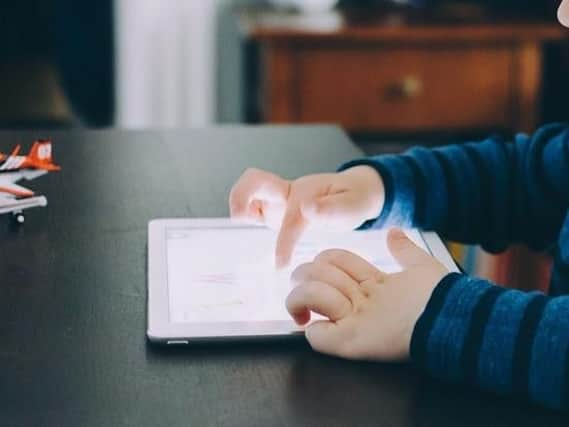Internet used to commit 72 sex crimes against Northamptonshire children in 12 months


Last year the internet was used to commit 72 sex crimes against children in the county, so it’s vital young people know how to stay safe.
The charity says the web can be a fantastic place for children and young people to socialise, explore their interests, and learn, but warned every parent who has bought their child an internet-enabled device should be aware there are risks too.
Advertisement
Hide AdAdvertisement
Hide AdBarbara Elsey, NSPCC community fundraising manager for Northamptonshire, said: "As children get used to their new tablets, smartphones and games consoles post-Christmas it would be fair to assume many will be spending more time online this year. But, how can we really be sure our children are safe while they are online?
"We know children are becoming increasingly concerned about what they sometimes encounter on the internet from the increasing number of calls on the subject to our Childline service.
"For example, over the past three years there has been a 33 per cent increase in the number of counselling sessions held with children about online sexual abuse they have been subjected to.
"Some children contacted Childline because they felt trapped and ashamed by their situation and were too were frightened to talk to an adult. Some were being blackmailed, while others wrongly felt they were to blame because they have participated in their abuser’s actions.
Advertisement
Hide AdAdvertisement
Hide Ad"And figures obtained from the police by the NSPCC show that in Northamptonshire alone, the internet was used as a gateway by offenders to commit 72 sex crimes against children in 2016/17.
"Online sexual abuse can take the form of grooming, child sexual exploitation, sexting, being made to perform sex acts on webcam, meeting up in person, and viewing distressing sexually explicit content."
The NSPCC believes it is vital for parents and children to sit and talk on a regular basis to help spot the signs of inappropriate behaviour, and learn how to report it and ask for help if they need it.
The charity advises parents to explore sites and apps together with their children, talk about things they might see online which make them feel uncomfortable, talk about what is, and is not, ok to share online, and to reassure children that you won't overreact, that you're just looking out for them.
The NSPCC website help and advice for parents to get to grips with online safety and installing controls. Visit www.nspcc.org.uk to find out more.